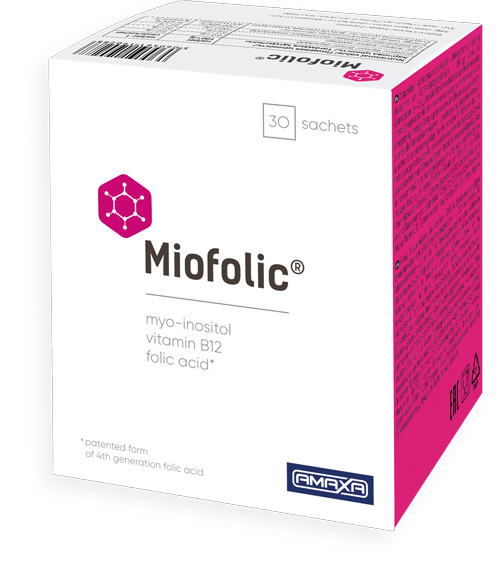Insulin resistance (decreased insulin sensitivity) is observed in 50-70% of women with PCOS, regardless of their weight.
Insulin resistance reduces the capability of cells to normally process glucose, which leads to the accumulation of glucose in the blood (hyperglycemia). In this case, the body begins to produce more insulin, which leads to high insulin levels (hyperinsulinemia).
Insulin is a hormone with several different functions affecting the metabolism of carbohydrates, fats and proteins.
The insulin produced by the pancreas is mainly regulated by the glucose levels in the blood.
With high glucose concentration in the blood, the secretion of insulin increases, and when the blood glucose level decreases, the insulin production decreases.
Insulin manifests its function in binding to a specific receptor in the cell membrane. Thus, insulin indirectly controls the intracellular metabolic mechanism without the need for penetration into the cell.
The key component of the intracellular signal transmission and the insulin receptors functioning is myo-inositol, the active agent of the Miofolic drug.
Insulin resistance is characterized by reduced insulin efficiency, for example, in muscle and adipose tissue. Although insulin resistance is not one of the three diagnostic criteria for PCOS, the determination of blood glucose levels, fasting insulin and sex hormone binding globulin (SHBG) can help identify changes in the insulin sensitivity.
Insulin reduces the SHBG synthesis. The key function of SHBG (sex hormone binding globulin) is to reduce the excess level of sex hormones, including testosterone, so the lack of SHBG can lead to high circulating testosterone.
Although the cause of PCOS is not exactly known, hyperinsulinemia usually plays a key role in its development.
Taking Miofolic helps restore insulin sensitivity and normalizes metabolic processes in the body, thereby helping to control weight.

